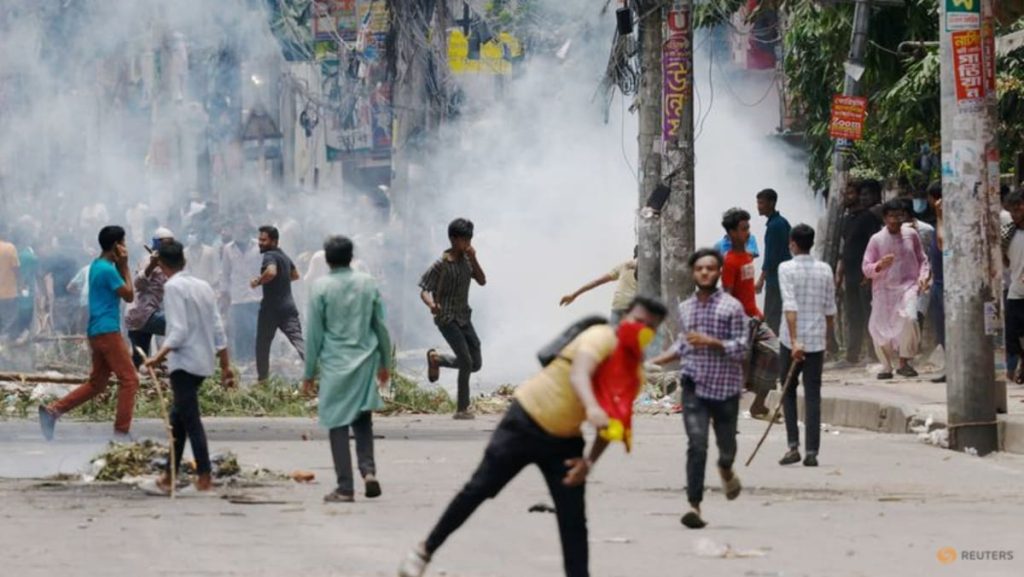Bangladesh’s government declared a day of mourning for the victims of violence in recent nationwide unrest, which culminated in the deaths of at least 206 people, including police officers. The violence was sparked by student rallies against civil service job quotas, resulting in clashes between students and police officers. Despite the government’s efforts to restore order through mass arrests, troop deployments, and an internet shutdown, students continue to protest the deaths of their classmates.
Prime Minister Sheikh Hasina’s administration plans to commemorate the violence, destruction of government buildings, and “terrorist activities” that occurred during the unrest with prayers in mosques across the country. However, Students Against Discrimination, the group that initiated the protests, criticized the government’s announcement as an attempt to shift blame away from the police for the death toll. The students feel that rather than seeking justice for those killed by state forces, they are being disregarded and disrespected.
The student protests and subsequent violence represent some of the most severe challenges faced by Prime Minister Hasina during her 15-year tenure. The unrest has highlighted deep-seated issues of inequality and discrimination in Bangladesh, particularly relating to civil service job quotas. While the government has taken steps to quell the violence, students and critics remain dissatisfied with the lack of accountability for the deaths that occurred during the clashes.
The government’s decision to call for a day of mourning reflects an acknowledgment of the human cost of the unrest, but it also raises questions about the handling of the situation by authorities. The use of force by police and the resulting deaths have sparked widespread public outrage and demands for justice. The deaths of students and police officers in the clashes have further polarized society and underscored the need for meaningful dialogue and reform to address the root causes of the protests.
Going forward, it is imperative for the government to engage with students and other stakeholders to address their grievances and work towards a more inclusive and equitable society. The unrest in Bangladesh serves as a wake-up call for policymakers to prioritize social justice and respect for human rights in their decision-making. By listening to the voices of the protesters and taking tangible steps to address their concerns, the government can prevent further violence and build a more stable and harmonious future for the country.
In conclusion, the recent violence in Bangladesh has exposed underlying tensions and inequalities that must be addressed through thoughtful and inclusive dialogue. The government’s call for a day of mourning reflects a recognition of the tragic loss of life during the unrest, but it also highlights the need for accountability and justice for those who were killed. Moving forward, it is essential for all parties to come together in a spirit of cooperation and compromise to find sustainable solutions to the issues that sparked the protests. Only through genuine engagement and respect for all voices can Bangladesh move towards a more peaceful and prosperous future for all its citizens.















